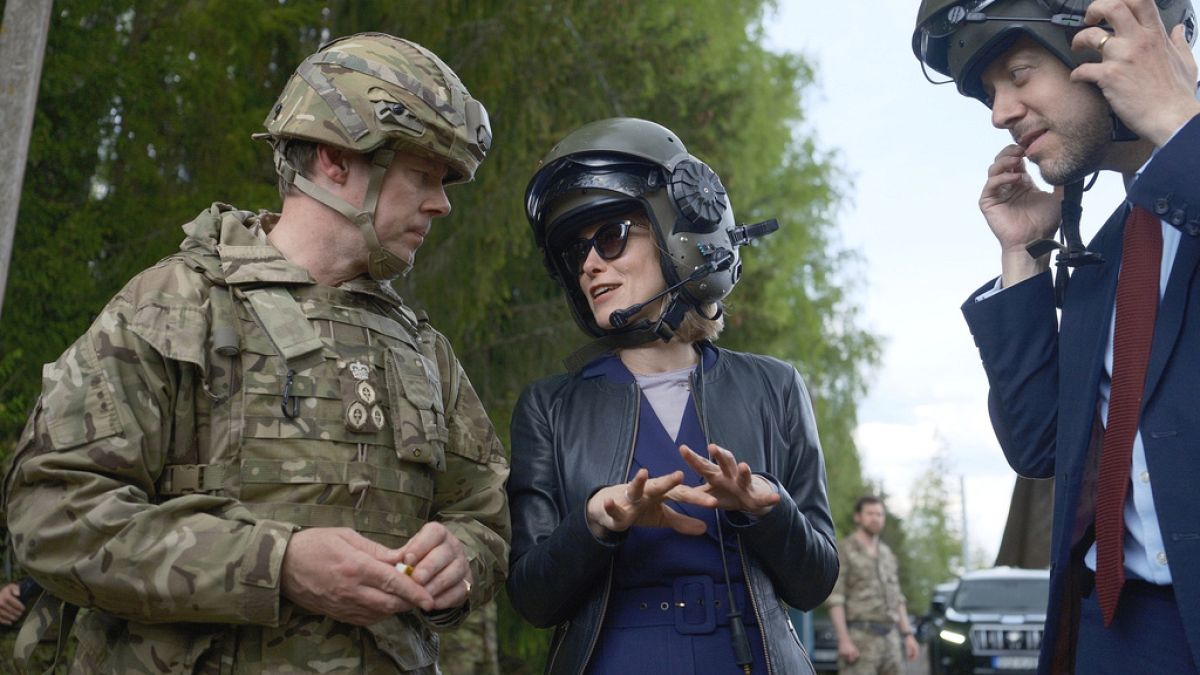Estonian Prime Minister Kaja Kallas recently expressed concerns about the increasing threats coming from Moscow, including sabotage, electronic warfare, and spying activities. With the war in Ukraine possibly turning in Russia’s favor, frontline nations like Estonia are looking to strengthen their defenses against potential attacks. Kallas, along with other leaders like Lithuanian President Gitanas Nauseda and Polish Prime Minister Donald Tusk, have highlighted the need for vigilance and coordination among Western allies to address the escalating tensions.
Reports of Russia’s attempts to redraw maritime borders in the Baltic Sea have raised alarms in the region, prompting calls for a united response from NATO allies. There is growing concern about Moscow’s tactics, which have evolved beyond traditional military strategies to include cyberattacks, election interference, disinformation campaigns, and attacks on political opponents. Western officials and experts believe that Russia may escalate such activities, especially with key elections on the horizon.
Estonia has a history of aggressively pursuing Russian agents of influence and exposing espionage activities. The country has significantly ramped up its counterintelligence efforts since gaining independence from the USSR in 1991. Recent arrests of individuals involved in spying activities and attacks allegedly orchestrated by Russian military intelligence have underscored the ongoing threat posed by Moscow. Estonia’s proactive approach in identifying and apprehending foreign agents has set a precedent for other European nations.
The trend of Russia outsourcing attacks to locals, sometimes recruited at a lower cost, has made it more challenging to trace and link these incidents back to the Kremlin. Security experts warn that such tactics could lead to unintended casualties and injuries, as bad actors continue to push their luck in the absence of decisive action. Collaborations between Russian intelligence and criminal elements have been highlighted in instances like the poisoning of former spy Sergei Skripal and opposition leader Alexei Navalny, underscoring the complexity of the threat landscape.
Despite Russia’s long history of carrying out attacks in Europe, there is a lack of a coordinated mechanism to address these threats collectively. Estonian officials and experts believe that the EU should play a more active role in combatting hybrid threats posed by Moscow. Proposals for limiting visas for Russian diplomats and imposing additional sanctions to deter potential collaborators have been put forward. The exposure of Russian intelligence operations abroad can serve as a critical deterrent and disrupt Moscow’s efforts to sow fear and create divisions among Western allies.
As tensions escalate between Russia and the West, leaders like Kaja Kallas are calling for a unified response to address the threats emanating from Moscow. The Baltic region, including countries like Estonia, Lithuania, and Poland, is stepping up efforts to bolster their defenses against potential attacks. The changing tactics of the Kremlin, from cyber warfare to disinformation campaigns, have raised concerns among Western officials, who fear an escalation of hostilities in the lead-up to crucial elections. Estonia’s proactive approach in combating Russian espionage activities serves as an example for other European nations, highlighting the importance of vigilance and coordination in countering hybrid threats.











